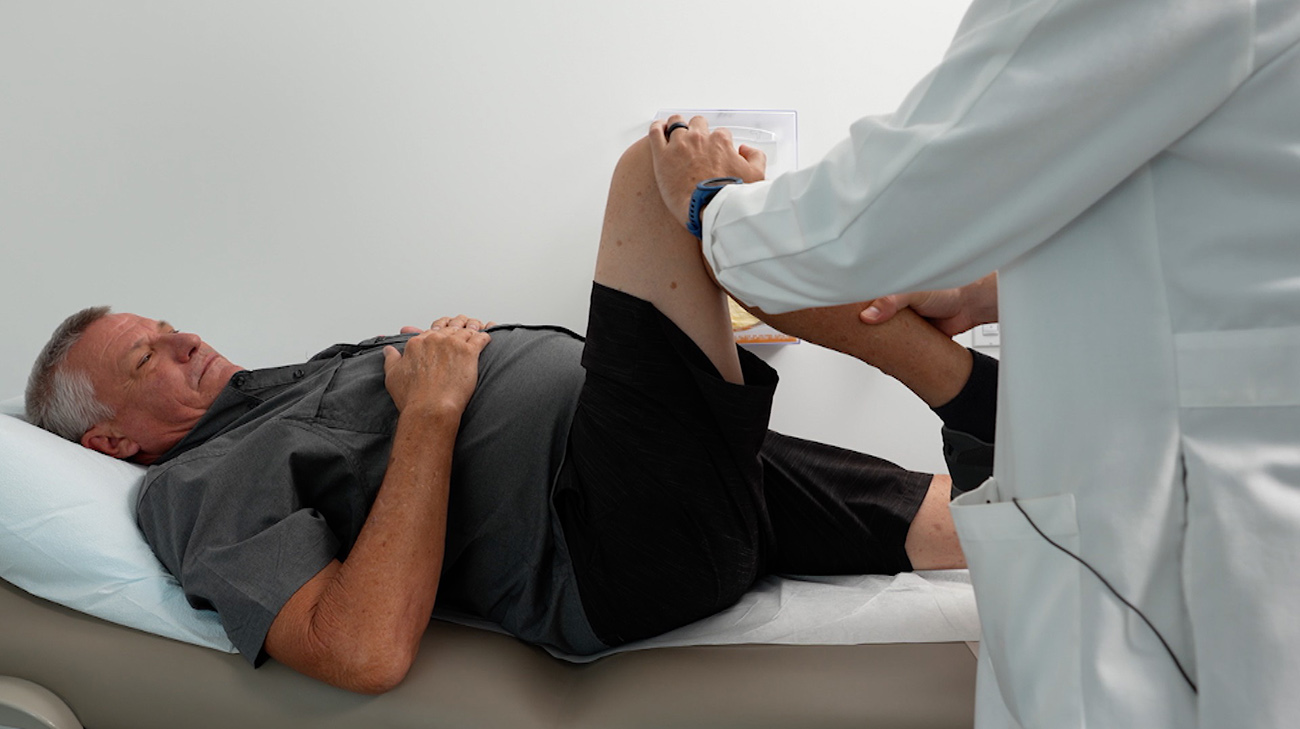John H. Ostrout, Jr., has loved fishing since he was a child. So, it was one of the things he missed the most when the pain he had been dealing with in his hip for years became unbearable.
“It was impossible to walk on the sand with my hip the way it was,” the 57-year-old says. Even walking to the mailbox or standing in the kitchen to cook were painful ordeals.
“The pain was almost blinding,” John says. “It hurt to sit but it was worse to walk. It felt like broken glass in my hip joint. There was no enjoyment in life.”
John was suffering from femoroacetabular impingement (FAI), a condition in which the hip joint is not shaped normally, causing the bones to rub against each other during movement. Over time, this causes damage to the joint, which results in pain and decreased mobility.
When the pain got so bad for John that he became sedentary, he went to Cleveland Clinic Florida for help.
Michael MacKechnie, MD, an orthopaedic surgeon at Cleveland Clinic Martin South Hospital, diagnosed the condition in John. Dr. MacKechnie, who specializes in minimally invasive surgical techniques to treat FAI, says it is not a disease that is well known among doctors, and many orthopaedic surgeons do not treat it with minimally invasive techniques.

John in physical therapy after his surgery.
“I was really happy to be able to see John and give him a plan to help make him better,” Dr. MacKechnie says.
He asked John to commit to physical therapy for two months to strengthen his hip prior to surgery. Though he says the physical therapy was painful, John refused to quit because he knew the surgery was his last hope.
Dr. MacKechnie performed a minimally invasive surgery, called arthroscopy, on John’s hip to correct the abnormality. Arthroscopy utilizes only two or three small incisions and has a lower rate of complications than the traditional open surgery that requires a larger incision. Patients who have arthroscopy can usually go home the same day, move around with crutches right away and have a faster recovery to activities. After undergoing more physical therapy post-surgery, John is now able to do everything he did before, including fishing, gardening, and cooking.
“To be able to go through a day and not have any pain,” John says, “It’s like a rebirth. It changes your attitude. It changes your outlook on life. Now I look forward to every day.”
Dr. MacKechnie says he is delighted to see how well John is doing.
“I tell people sometimes that surgery is a team sport,” Dr. MacKechnie says. “I certainly do my very best for my patients and I know that they are doing their best to recover, and I think when we both do our jobs well is when we have the best results.”
Related Institutes: Orthopaedic & Rheumatologic Institute

